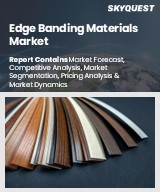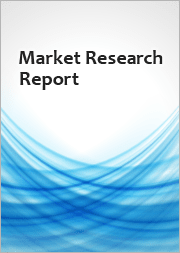
|
시장보고서
상품코드
1754249
수성 목재 코팅 시장 보고서 : 용도별, 지역별(2025-2033년)Waterborne Wood Coatings Market Report by Application (Furniture, Decking, Joinery, Siding, Flooring, and Others), and Region 2025-2033 |
||||||
세계의 수성 목재 코팅 시장 규모는 2024년에 14억 달러에 이르렀습니다. IMARC Group은 2025-2033년 성장률(CAGR) 4.9%로 성장할 전망이며, 2033년에는 21억 달러에 이를 것으로 예측하고 있습니다.
목공용 도료는 일반적으로, 쉘락, 건조유, 래커, 바니시 등의 여러가지 층을 조합하여 만들어져, 각 층은 샌딩됩니다. 그러나, 수성 목재 코팅은 아크릴, 폴리에스테르, 폴리우레탄, 불소 수지, 수성 파우더 등, 다양한 수지로 만들어져 있습니다. 이러한 페인트에는 수지가 분산되기 쉽도록 물이 첨가되어 있습니다. 이 페인트들은 목재 표면을 보호하고 외관을 향상시키기 위해 도포됩니다. 이러한 페인트는 물을 많이 함유하고 있기 때문에 도포하기 쉽고 환경 친화적입니다. 수성 페인트의 점도 및 조성은 다양하며 다양한 용제를 첨가할 수 있습니다. 수성 페인트는 테이블, 의자, 선반, 목제 장식품 등의 가구에 자주 사용됩니다.
수성 목재 코팅 시장은 현재 지속적인 성장을 보여주고 있습니다. 아시아태평양, 라틴 아메리카, 동유럽의 신흥 경제권에서 도시화의 진전에 수반해, 수성 목재 코팅의 수요가 큰폭으로 증가하고 있습니다. 도시화의 진전은 주택, 상업, 공업 인프라의 증가를 야기해, 이러한 지역에서 목제품의 수요에 좋은 영향을 주고 있습니다. 게다가 세계 장식 산업의 성장으로 목제 공예품이나 장식품의 생산이 증가하고 있는 것도, 이러한 코팅제의 수요를 촉진하고 있습니다. 또한 수성 목재 코팅은 그 대체품에 비해 많은 이점을 제공합니다. 여기에는 견고성, 내오염성, 내식성, 유연성 등이 포함됩니다. 수성 목재 페인트 수요를 촉진하는 기타 요인으로는 VOC(휘발성 유기화합물) 배출량을 줄이기 위한 정부 규제, 제품 혁신, 목재 재사용 증가 등을 들 수 있습니다.
이 보고서에서 다루는 주요 질문
- 수성 목재 코팅 시장 규모는?
- 2025-2033년 세계의 수성 목재 코팅 시장의 예상 성장률은?
- 세계의 수성 목재 코팅 시장을 견인하는 주요인은?
- 세계의 수성 목재 코팅 시장에서 COVID-19의 영향은?
- 세계의 수성 목재 코팅 시장에서 용도별 구분은?
- 세계의 수성 목재 코팅 시장의 주요 지역은?
목차
제1장 서문
제2장 조사 범위 및 조사 방법
- 조사의 목적
- 이해관계자
- 데이터 소스
- 1차 정보
- 2차 정보
- 시장 추정
- 상향식 접근
- 하향식 접근
- 조사 방법
제3장 주요 요약
제4장 서문
- 개요
- 속성
- 주요 업계 동향
제5장 세계의 수성 목재 코팅 시장
- 시장 개요
- 시장 실적
- COVID-19의 영향
- 시장 내역 : 용도별
- 시장 내역 : 지역별
- 시장 예측
제6장 시장 내역 : 용도별
- 가구
- 덱
- 목공
- 사이딩
- 바닥
- 기타
제7장 시장 내역 : 지역별
- 아시아태평양
- 유럽
- 북미
- 중동 및 아프리카
- 라틴아메리카
제8장 세계의 수성 목재 코팅 산업 : SWOT 분석
- 개요
- 강점
- 약점
- 기회
- 위협
제9장 세계의 수성 목재 코팅 산업 : 밸류체인 분석
- 개요
- 연구개발
- 원재료 조달
- 제조
- 마케팅
- 유통
- 최종 용도
제10장 세계의 수성 목재 코팅 산업 : Porter's Five Forces 분석
- 개요
- 구매자의 협상력
- 공급기업의 협상력
- 경쟁도
- 신규 참가업체의 위협
- 대체품의 위협
제11장 세계의 수성 목재 코팅 산업 : 가격 분석
제12장 제조 공정
- 제품 개요
- 원재료 요건
- 제조 공정
- 주요 성공 요인 및 위험 요인
제13장 경쟁 구도
- 시장 구조
- 주요 기업
- 주요 기업 프로파일
- BASF SE
- Akzo Nobel Hilden GmbH
- Axalta Coating Systems, LLC
- Benjamin Moore & Co.(Berkshire Hathaway Inc.)
- Diamond Vogel
- Helios TBLUS doo(Kansai Paint Co.,Ltd.)
- PPG Industries Inc.
- Teknos Group Oy
- The Dow Chemical Company
- The Sherwin-Williams Company
The global waterborne wood coatings market size reached USD 1.4 Billion in 2024. Looking forward, IMARC Group expects the market to reach USD 2.1 Billion by 2033, exhibiting a growth rate (CAGR) of 4.9% during 2025-2033.
Wood coatings are generally created by combining various layers of shellac, drying oil, lacquer, varnish, etc. where every layer is followed by sanding. Whereas, on the contrary, waterborne wood coatings are made from a wide range of resins which include acrylic, polyester, polyurethane, fluoropolymer, waterborne powder, etc. Water is added in these coatings to enable the resin to get dispersed easily. These coatings are applied on the wood surface to protect and enhance its appearance. The high-water content of these coatings makes them easy to apply and environment-friendly as well. The consistency and the composition of the waterborne coatings vary and different solvents can be added to it. These coatings are often applied on furniture items such as tables, chairs, shelves, decorative wooden items, etc.
The market for waterborne wood coatings is currently exhibiting a continuous growth. Catalyzed by growing urbanization in emerging economies across the Asia Pacific, Latin America, and Eastern Europe, there has been a significant rise in the demand of waterborne wood coatings. Growing urbanization has triggered a rise in the residential, commercial, and industrial infrastructure, creating a positive impact on the demand of wooden products in these regions. Moreover, rising production of wooden artefacts and decorative items catalyzed by the growth of the global decor industry has also been driving the demand of these coatings. Additionally, waterborne wood coating offers numerous advantages compared to its substitutes. This includes robustness, stain resistance, corrosion resistance, flexibility, etc. Other factors driving the demand of waterborne wood coating include government regulations to reduce VOC (volatile organic compounds) emissions, product innovation, rising wood reuse, etc.
Key Market Segmentation:
Breakup by Application:
- Furniture
- Decking
- Joinery
- Siding
- Flooring
- Others
Based on the application, the market has been segmented into furniture, decking, joinery, siding, flooring and others. Joinery currently represents the biggest application.
Breakup by Region:
- Asia Pacific
- North America
- Europe
- Middle East and Africa
- Latin America
Region-wise, the market has been segmented into Asia Pacific, Europe, North America, Middle East and Africa, and Latin America. Amongst these, Asia Pacific is the biggest market, accounting for the majority of the global market.
Competitive Landscape:
The report has also analysed the competitive landscape of the market with some of the key players being BASF SE, Akzo Nobel Hilden GmbH, Axalta Coating Systems, LLC, Benjamin Moore & Co. (Berkshire Hathaway Inc.), Diamond Vogel, Helios TBLUS d.o.o (Kansai Paint Co.,Ltd.), PPG Industries Inc., Teknos Group Oy, The Dow Chemical Company and The Sherwin-Williams Company.
Key Questions Answered in This Report
- 1.How big is the waterborne wood coatings market?
- 2.What is the expected growth rate of the global waterborne wood coatings market during 2025-2033?
- 3.What are the key factors driving the global waterborne wood coatings market?
- 4.What has been the impact of COVID-19 on the global waterborne wood coatings market?
- 5.What is the breakup of the global waterborne wood coatings market based on the application?
- 6.What are the key regions in the global waterborne wood coatings market?
Table of Contents
1 Preface
2 Scope and Methodology
- 2.1 Objectives of the Study
- 2.2 Stakeholders
- 2.3 Data Sources
- 2.3.1 Primary Sources
- 2.3.2 Secondary Sources
- 2.4 Market Estimation
- 2.4.1 Bottom-Up Approach
- 2.4.2 Top-Down Approach
- 2.5 Forecasting Methodology
3 Executive Summary
4 Introduction
- 4.1 Overview
- 4.2 Properties
- 4.3 Key Industry Trends
5 Global Waterborne Wood Coatings Market
- 5.1 Market Overview
- 5.2 Market Performance
- 5.3 Impact of COVID-19
- 5.4 Market Breakup by Application
- 5.5 Market Breakup by Region
- 5.6 Market Forecast
6 Market Breakup by Application
- 6.1 Furniture
- 6.1.1 Market Trends
- 6.1.2 Market Forecast
- 6.2 Decking
- 6.2.1 Market Trends
- 6.2.2 Market Forecast
- 6.3 Joinery
- 6.3.1 Market Trends
- 6.3.2 Market Forecast
- 6.4 Siding
- 6.4.1 Market Trends
- 6.4.2 Market Forecast
- 6.5 Flooring
- 6.5.1 Market Trends
- 6.5.2 Market Forecast
- 6.6 Others
- 6.6.1 Market Trends
- 6.6.2 Market Forecast
7 Market Breakup by Region
- 7.1 Asia Pacific
- 7.1.1 Market Trends
- 7.1.2 Market Forecast
- 7.2 Europe
- 7.2.1 Market Trends
- 7.2.2 Market Forecast
- 7.3 North America
- 7.3.1 Market Trends
- 7.3.2 Market Forecast
- 7.4 Middle East and Africa
- 7.4.1 Market Trends
- 7.4.2 Market Forecast
- 7.5 Latin America
- 7.5.1 Market Trends
- 7.5.2 Market Forecast
8 Global Waterborne Wood Coatings Industry: SWOT Analysis
- 8.1 Overview
- 8.2 Strengths
- 8.3 Weaknesses
- 8.4 Opportunities
- 8.5 Threats
9 Global Waterborne Wood Coatings Industry: Value Chain Analysis
- 9.1 Overview
- 9.2 Research and Development
- 9.3 Raw Material Procurement
- 9.4 Manufacturing
- 9.5 Marketing
- 9.6 Distribution
- 9.7 End-Use
10 Global Waterborne Wood Coatings Industry: Porters Five Forces Analysis
- 10.1 Overview
- 10.2 Bargaining Power of Buyers
- 10.3 Bargaining Power of Suppliers
- 10.4 Degree of Competition
- 10.5 Threat of New Entrants
- 10.6 Threat of Substitutes
11 Global Waterborne Wood Coatings Industry: Price Analysis
12 Manufacturing Process
- 12.1 Product Overview
- 12.2 Raw Material Requirements
- 12.3 Manufacturing Process
- 12.4 Key Success and Risk Factors
13 Competitive Landscape
- 13.1 Market Structure
- 13.2 Key Players
- 13.3 Profiles of Key Players
- 13.3.1 BASF SE
- 13.3.2 Akzo Nobel Hilden GmbH
- 13.3.3 Axalta Coating Systems, LLC
- 13.3.4 Benjamin Moore & Co. (Berkshire Hathaway Inc.)
- 13.3.5 Diamond Vogel
- 13.3.6 Helios TBLUS d.o.o (Kansai Paint Co.,Ltd.)
- 13.3.7 PPG Industries Inc.
- 13.3.8 Teknos Group Oy
- 13.3.9 The Dow Chemical Company
- 13.3.10 The Sherwin-Williams Company



















